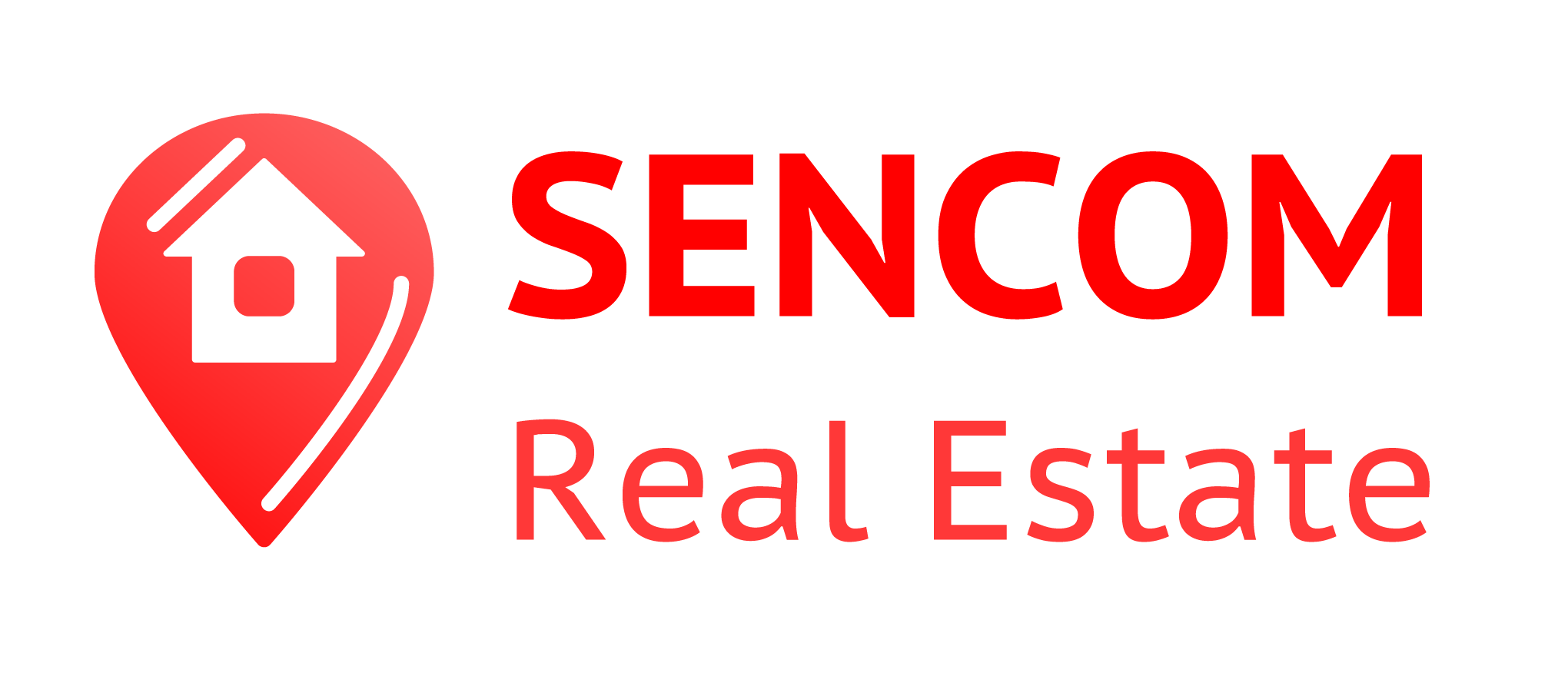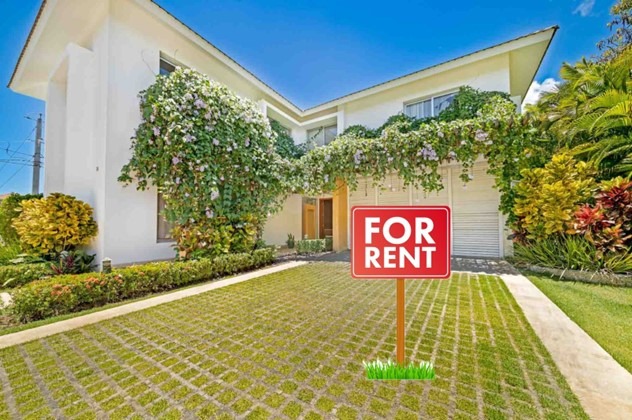TYPES OF REAL ESTATE FOR RENT
The real estate rental market in the Dominican Republic is quite diverse. The following types of real estate are available:
- Houses
- Apartments
- Villas
- Rooms
- Commercial premises
- Warehouses
- Land plots
These properties can be furnished or unfurnished, located in various areas, and available for different budgets and preferences.
STAGES OF THE HOUSING RENTAL PROCESS
- Search and selection of housing
- Discussion of lease conditions (terms/price)
- Checking the tenant’s data and collecting the necessary documents
- Making a deposit for the reservation
- Preparation and signing of the contract
- Delivery of housing, inventory
- Accommodation
- Termination/extension of the lease by mutual agreement
Let’s consider the stages and key points of the lease in more detail.
1. SEARCH AND SELECTION OF HOUSING
Due to the high dynamism of the market, housing is rented out quickly because of high demand. Therefore, the main advice for a future tenant is to clearly formulate their request and describe their needs in detail so that the agent can quickly and accurately select available properties for inspection.
Specify the following essential parameters of your request:
- Estimated rental period
- Approximate date of arrival
- Type of housing (villa/apartment)
- Number of rooms
- Furnished or unfurnished
- Budget
- Areas of residence under consideration
If you have a pet, you must mention this in your request, as not all residential complexes allow pets. Remember that different residential complexes have different condominium rules, which you can review when checking in.
In response to your request, the agent will offer available options and arrange visits.
2. TERMS AND PRICE OF THE RENT
There are three categories of rental terms:
- Short-term: from 1 day to 3 months
- Medium-term: 3-6 months
- Long-term rental: from 6 months and up
There is a direct correlation between the term and the cost of the lease: the shorter the term, the higher the cost. Each owner decides what terms are acceptable to them.
Generally, the long-term rental price is indicated on the websites of agencies (except on specialized daily rental sites). Thus, if you are interested in a short interval, we recommend clarifying the availability of the property for the requested period, as well as the cost and included services.
The terms of the contract, the services included, and the utilities depend on the rental period. The longer the rental period, the fewer services will be included, since the tenant can choose the provider or rate for a longer duration. When reviewing or concluding a contract, it is recommended to clarify whether the following services are included in the price:
- Water
- Gas
- Electricity
- Internet
- Cable TV
- Condominium maintenance and fees (often not included in Cap Cana and Punta Cana)
For long-term leases, tenants often sign utility contracts in their own name. In Punta Cana, tenants may sign a “Contrato de solidaridad,” where they enter into utility contracts in their name and are responsible for them.
3. DOCUMENTS AND REQUIREMENTS FOR THE TENANT
It is not necessary to be a citizen or resident of the country for the rent, but a long-term contract may require additional documents to confirm your reliability and solvency, as well as the legality of the origin of funds. Owners entrust their property to us, and we, as their representatives, are obligated to request documents, including:
- KNOW YOUR CLIENT (KYC) / DEBIDA DILIGENCIA form (to be filled out by the client)
- Identity card (for foreign citizens, two documents are requested, such as a passport and a driver’s license)
- Job certificate or company document for business owners (Registro mercantil)
- Bank statement (account movement for the last 3 months)
- Recommendations from the previous landlord
- In some cases, a Dominican guarantor may be required
Please note that it takes time to review the documents and prepare the contract, so it is important to accurately calculate the reservation date (deposit) and check-in date.
4. SECURITY DEPOSIT AND MONTHLY PAYMENTS
The deposit amount is usually equal to two months’ rent and is refunded at the end of the lease term after checking the payment of bills and the condition of the property. Therefore, 3 months’ rent must be paid before moving in: a 2-month deposit and the first month’s rent. In rare cases, accommodation with a single deposit is allowed by agreement with the owner (unfurnished rental, prepayment for several months in advance, etc.)
The deposit for a long-term lease serves several functions:
- Reservation of the selected property and withdrawal from the market (without a deposit, the property is not considered reserved and remains available for other clients. If, after booking and removing the property from the market, the client changes their mind, the deposit is not refunded).
- Warranty of the contract term (if the tenant terminates the contract before the expiration date, the deposit is not refunded).
- Guarantee for utility payments not included in the contract.
- Warranty against damage to property (the cost of repair or replacement of missing, damaged, or broken items can be deducted from the deposit).
- Cleaning costs at check-out are also covered by the deposit.
Please note that in the case of non-cash payment (bank transfer), covering all bank fees and currency exchange rate differences is the tenant’s responsibility. The owner must receive the exact amount specified in the contract.
5. THE CONTRACT AND ITS LEGALIZATION
- The contract must be notarized. The cost of preparing and notarizing the contract is paid by the tenant (approximately $100 USD).
- All documents in the Dominican Republic are signed only by hand and with a blue ink pen. Initials are required on all pages where there is no signature (also by hand and with a blue pen). Electronic signatures are not legally valid and such documents cannot be notarized.
- Key points for approval: cost, utilities included, number of deposits, conditions for early termination of the contract.
- Most contracts explicitly prohibit subleasing (the ability to re-rent the property or parts of it).
- The maximum term for a residential real estate contract is 1 year with the possibility of extension.
- During the contract term, the property is private and at the disposal of the tenant. All visits (if suddenly there is a need) must be coordinated with the tenant and cannot occur without their presence.
- If the property is also for sale, there may be a clause in the contract allowing viewings/showings, which are agreed upon with the tenant. If there is such a clause, the future tenant can discuss the maximum number of visits per week/month or other limits or wishes.
- An important addendum to the rental contract is the inventory list.
6. CHECK-IN AND DELIVERY-RECEPTION OF THE OBJECT
- The condition of the object. The property is rented as it is, with all appliances, furniture, and decor. Any changes (except some light rearrangements) must be confirmed with the owner, or the tenant must return everything to its original condition before leaving, including painting the walls.
- Inventory. The reception of the object is implemented with the owner or his representative/agent with an inventory list, where necessary notes are made, at the end the inventory is signed by both parties.
- Measurements. Upon check-in, the readings of electricity, water, and gas meters are recorded and included in the inventory (taking a photo is recommended).
- Carnets and passes. Some residential areas require special permits for both the tenant and their guests. Registration is done at the condominium’s administration office, based on the signed and notarized rental contract, and is confirmed by the issuance of a carnet. The cost of the carnet is paid separately by the tenant.
- Additional services. If some utilities (internet, telephone, TV cable) are not included in the contract and are not available in the rented property, the tenant can secure the agreement with service provider of his preference and choose a suitable pricing plan.
7. ACCOMMODATION
At this stage, the agent’s support ends, and further communication occurs directly with the property owner. During the rental period, your home is entirely your private space. If visits are necessary, they will be coordinated with you in advance and only in your presence. Major problems are usually resolved by the owner, while minor issues and those arising from careless use are your responsibility. These points will be detailed in the contract.
8. THE END OF THE LEASE
There are three options for ending the lease:
- Contract expiration: The tenant can request an extension of the contract. Rent may change at that time (usually increases by 5-10%). The tenant must inform in advance of their intention to extend (usually a month or two before the end). If the tenant does not express a desire to extend, the property is put back on the market.
- Early termination: The lease can be ended ahead of schedule, usually with a fine equal to the security deposit, unless otherwise specified by law or contract.
- Delayed delivery: This option is possible in cases of non-payment of rent (the owner may demand eviction) or if the tenant refuses to vacate the premises after the contract expiration without reaching an agreement on extension. In both cases, rent continues to accrue, along with fines for each day of delay.
The return of the property to the owner/representative and the return of the deposit
The property is returned according to the previously signed inventory list. The tenant is obliged to return the property to its original condition. In most cases, with a long-term rent, the tenant must also paint the walls inside the room. The deposit is refunded based on the acceptance certificate within the time limits set by the contract.
SHORT- AND MEDIUM-TERM RENTALS
The process of renting out housing for short and medium-term rentals is simpler due to the short duration, usually involving a reservation and instant payment for the entire period. A small inventory is made during check-in and check-out. Keys can be issued by the administrator or placed in a lockbox with a pre-sent code.
SUMMARY
Renting a property involves more than just finding a place to stay. The tenant assumes several responsibilities that are important for their well-being and maintaining a harmonious relationship with the landlord. These responsibilities include timely and accurate payment, proper preservation of the property, compliance with the rules of the condominium/residential complex, and adherence to contractual provisions. Understanding and respecting these responsibilities and rights ensures a positive rental experience for both parties.



